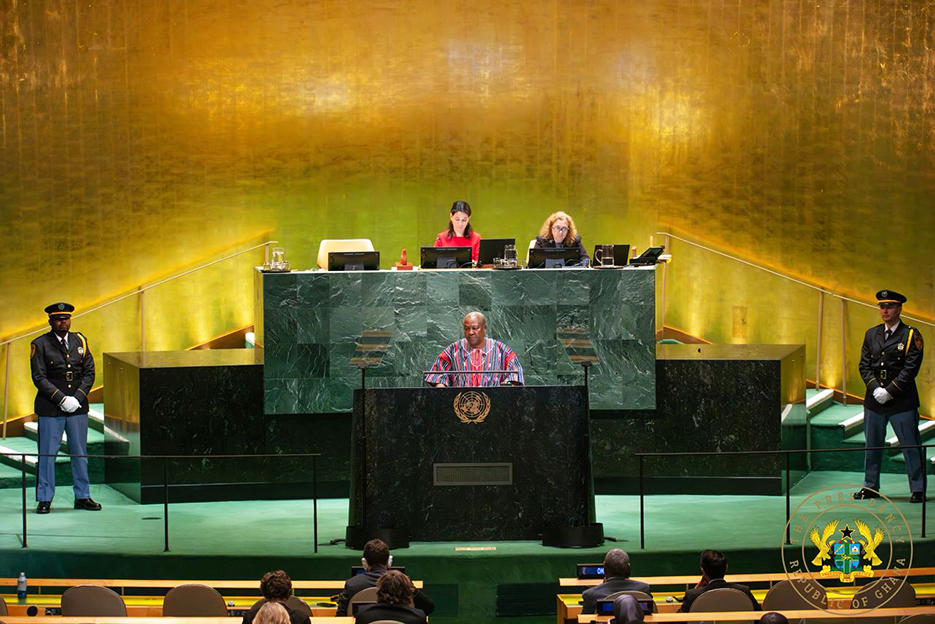
President John Dramani Mahama has called for sweeping reforms of the United Nations, declaring before world leaders at the 80th United Nations General Assembly that “no single nation should be able to exercise an absolute veto to serve its own interests in a dispute.”
Speaking on Thursday, September 25, 2025 President Mahama said the veto system, which grants five permanent members of the UN Security Council extraordinary powers, has created an imbalance that undermines the UN’s founding principle of sovereign equality.
He argued that Africa, with its growing demographic and geopolitical importance, must be given a permanent seat on the Council and a share in the veto authority.
“Furthermore, we believe that veto power should not be restricted to only five nations, nor should it be absolute.
“There must be a mechanism in this House for the General Assembly to challenge a veto,” Mahama told the Assembly.
President Mahama reminded the UN that Africa’s marginalisation within the global governance system was a relic of colonialism that could no longer be justified in the 21st century.

He recalled that during the UN’s founding in 1945, only four African countries – Egypt, Ethiopia, Liberia and South Africa were represented, while most of the continent was under colonial rule. Today, Africa has 54 member states and by 2050 will be home to over 25 percent of the world’s population.
“The future of this world is African,” he stressed, pointing to Africa’s potential as a driver of human development, economic transformation and ecological sustainability. “Already today, Africa is a catalyst for systemic change.”
Quoting Nelson Mandela’s 1995 call for the UN to “redefine its profile and reshape its structures,” President Mahama said it was regrettable that thirty years later, Africa’s request for Security Council representation remains unanswered. “So today, Madam President, I stand here in this exact spot and ask the world, If not now, then when?”
Reset Agenda
Beyond the Security Council, President Mahama urged a broader recalibration of global governance and financial institutions to reflect current realities.
He said the global financial system was “rigged against Africa,” locking developing nations into cycles of debt while denying them fair access to capital and investment.
“Africa must have a greater say in the world’s multilateral financial institutions,” he said, adding that the continent must also exercise sovereignty over its natural resources to ensure that wealth benefits citizens rather than foreign interests.
“The days of parcelling out vast concession areas for foreign interests for exploitation must come to an end. We will continue to welcome foreign investment, but we must negotiate better for a bigger share of the natural resources that belong to us,” President Mahama declared.
Gaza, Palestine and Global Conflicts
President Mahama’s speech also took aim at ongoing conflicts and what he described as double standards in international responses.
He condemned Israel’s actions in Gaza, stressing that innocent civilians were paying the price of collective punishment.
“For nearly two years, we here in this General Assembly have been playing hide-and-seek with language to find the right words to help us avoid or excuse what we all know is taking place in Gaza. But here’s the thing, it doesn’t matter what you call it.
If it looks like a duck, it swims like a duck, and quacks like a duck, well, then it must be a duck. The crimes in Gaza must stop,” Mahama said.
On Palestine, he reaffirmed Ghana’s support for a two-state solution, arguing that peace cannot come without justice for the Palestinian people.
He also criticised the denial of visas to Palestinian leaders seeking to attend the UN, warning it sets a dangerous precedent.
President John Mahama extended his critique to the conflict in Sudan, which he described as the “world’s largest humanitarian crisis,” displacing over 12 million people.
He challenged Western nations to respond with the same urgency they showed in supporting Ukrainian refugees.
Migration, Climate Change and Inequality
The Ghanaian leader linked the migration crisis to climate change, noting that the global north is responsible for the majority of greenhouse gas emissions while the global south suffers the harshest effects.
When the desert encroaches on our villages and towns, and they become unliveable, we are forced to flee.
Quoting Somali-British poet, Warsan Shire, he reminded delegates that “no one puts his or her children in a boat unless the water is safer than the land.
President Mahama urged world leaders not to normalise xenophobia, racism or cruelty against migrants, pointing out that many migrants from Africa have gone on to make historic contributions in their adopted countries.
He cited examples from law, medicine, art, and diplomacy, including Ghana’s own former UN Secretary-General and Nobel laureate, the late Kofi Annan.
Reparations and Historical Justice
In one of the most striking moments of his address, Mahama said Ghana intends to introduce a UN motion recognizing the transatlantic slave trade as the greatest crime against humanity and demanding reparations.
“More than 12.5 million Africans were forcibly taken against their will and transported to create wealth for the powerful Western nations.
“We must demand reparations for the enslavement of our people and the colonization of our land that resulted in the theft of our natural resources as well as the looting of artifacts,” he said.
He criticized the historical irony of former slave owners receiving compensation for the loss of their enslaved people, while the descendants of those enslaved have received nothing.
Ghana’s Reset Agenda and Domestic Progress
Turning to Ghana’s own progress, President Mahama highlighted his administration’s “Reset Agenda” aimed at stabilising the economy and restoring investor confidence.
He said inflation had fallen sharply from 23.8% in December 2024 to 11.5% in August 2025, while the Ghana cedi had emerged as one of the world’s best-performing currencies.
He pointed to the government’s 24-hour economy initiative as a game-changer that would generate jobs and reposition Ghana competitively on the global stage.
“Our people are beginning to trust once again that their elected officials have Ghana’s interests at heart and that we are progressing together,” he told the Assembly.
Unity and Renewal
President John Mahama ended his speech on a reflective note, likening the United Nations to the traditional town squares of old village spaces where people gathered to deliberate, celebrate and resolve conflicts together.
“In many ways, the United Nations is the proverbial town square of our modern global village. And it has never been more critical for us to protect this one space that brings and holds the world’s nations together as a community,” he said.
Warning against the dangers of disinformation, nationalism, and declining multilateralism, Mahama urged nations to recommit to the UN as a unifying force.
“Another world is not only possible, she is on her way,” he quoted Indian-American author, Arundhati Roy – “On a quiet day, I can hear her breathing.”
Mr. Mahama said the choices made today would determine whether the UN remains relevant for the next generation.
“The future is African. The choices Ghana and the world make now can unlock a generation of inclusive, resilient growth and deliver on the promise of dignity, peace and equality for all,” he concluded.
The post Mahama Speaks His Mind At The Un Assembly … Kicks against absolute veto held by 5 permanent countries appeared first on The Ghanaian Chronicle.
Read Full Story
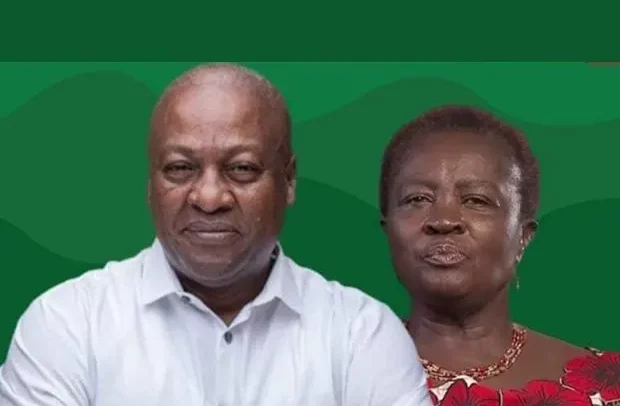

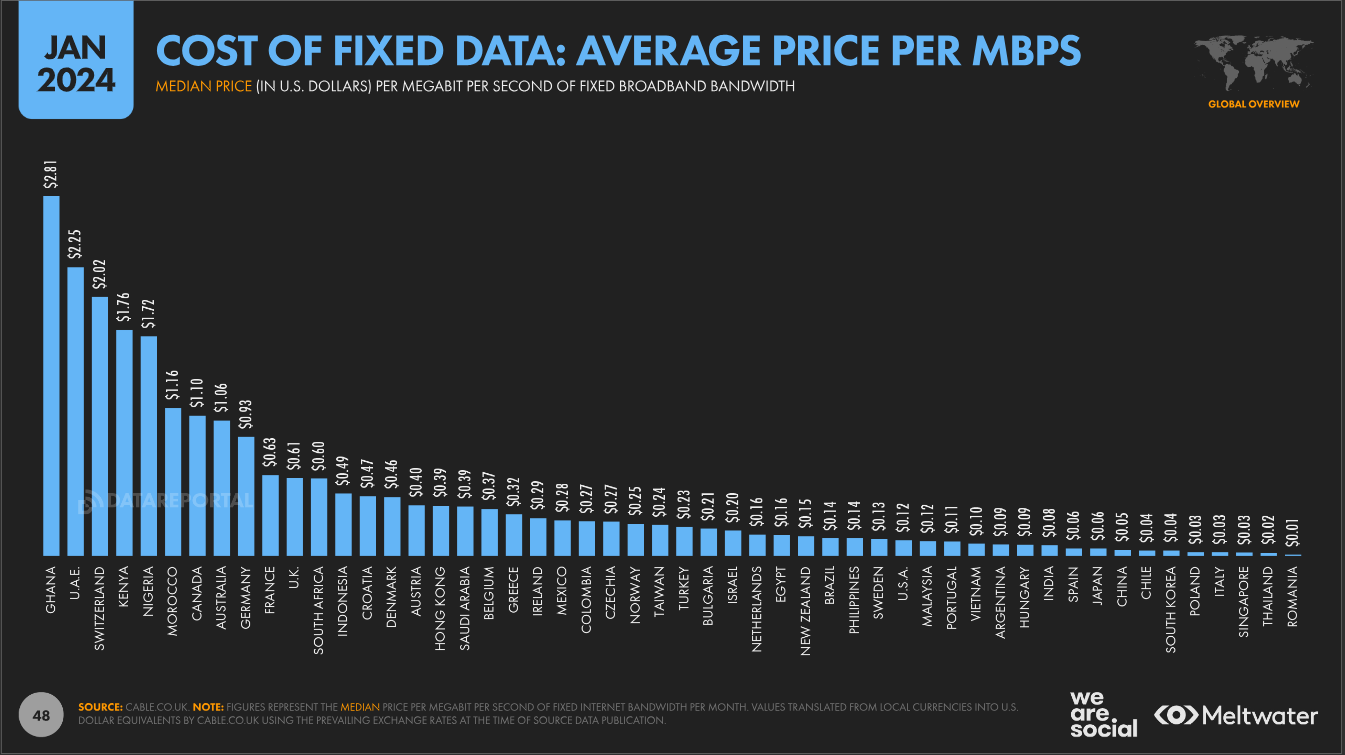
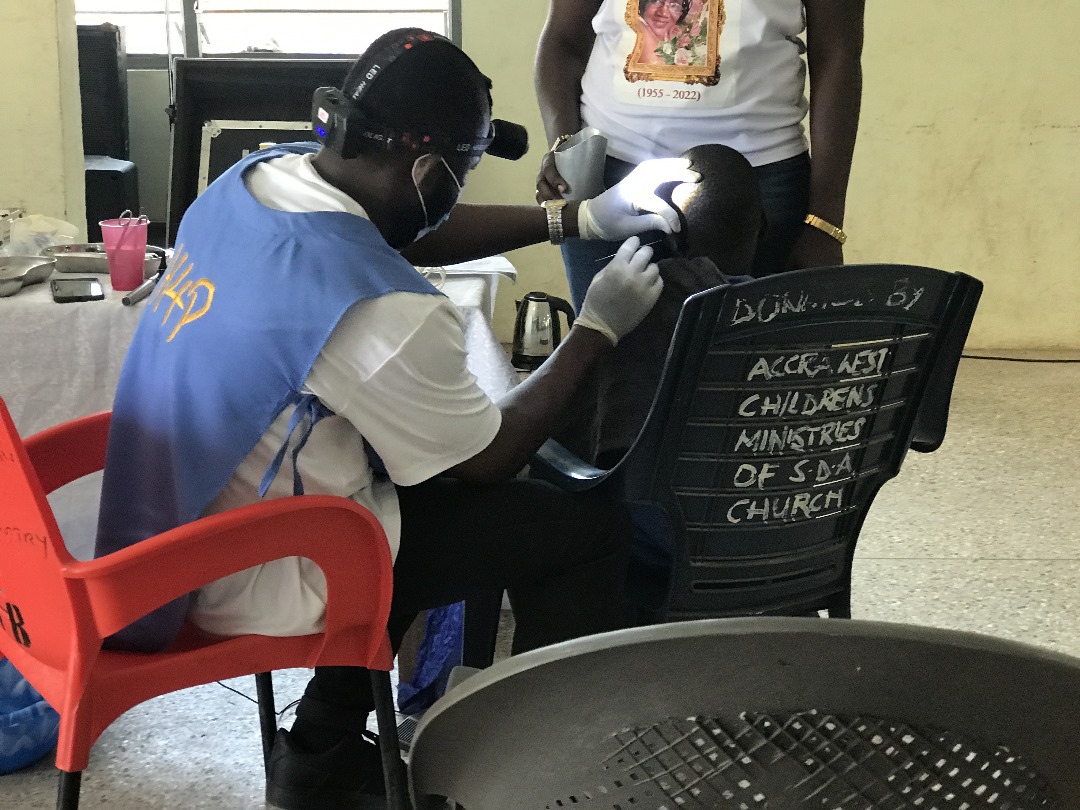
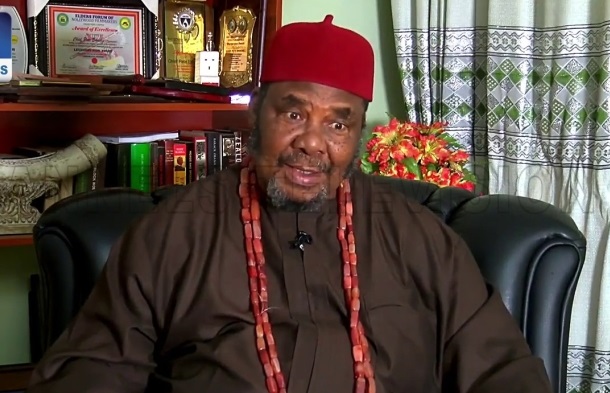
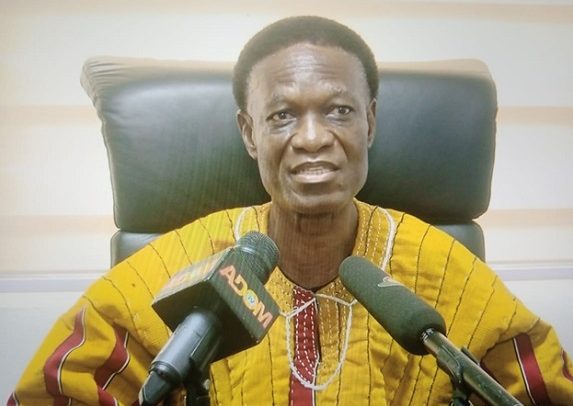
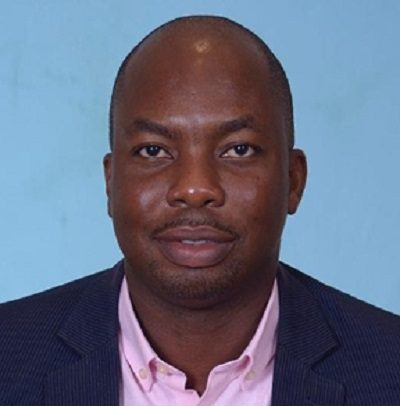
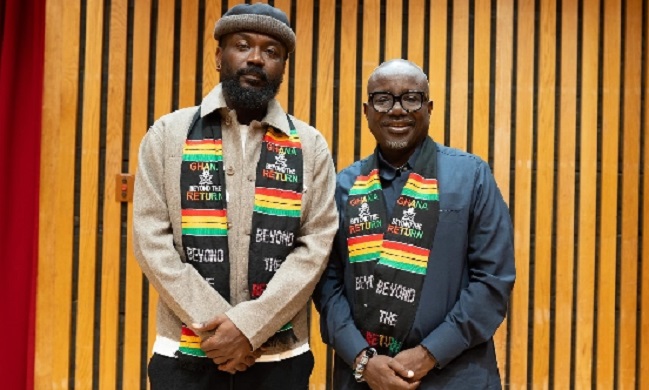
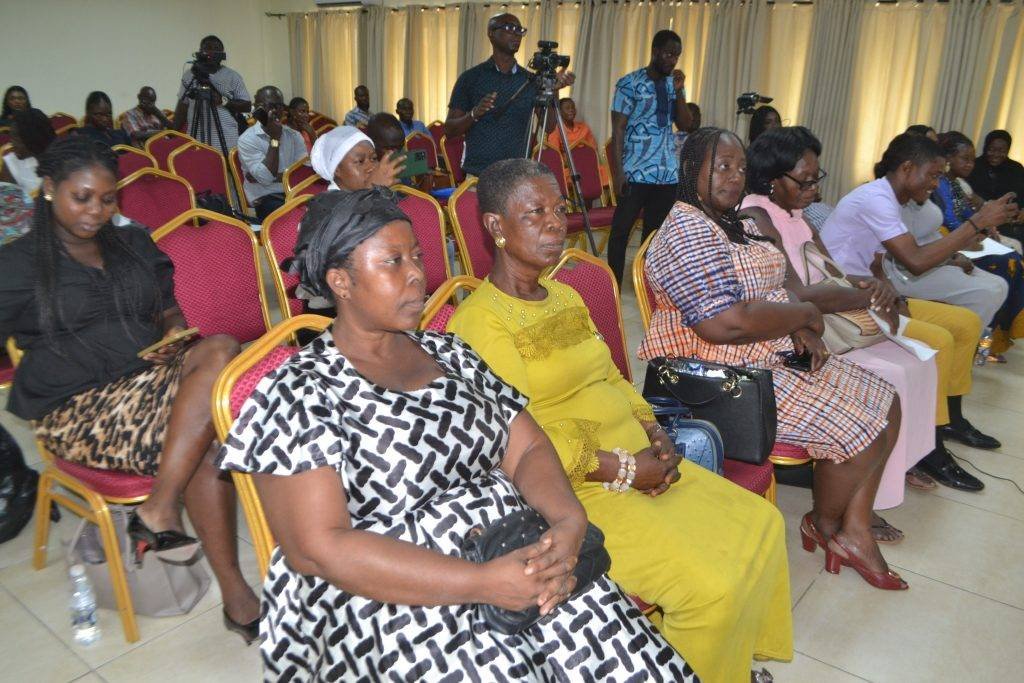


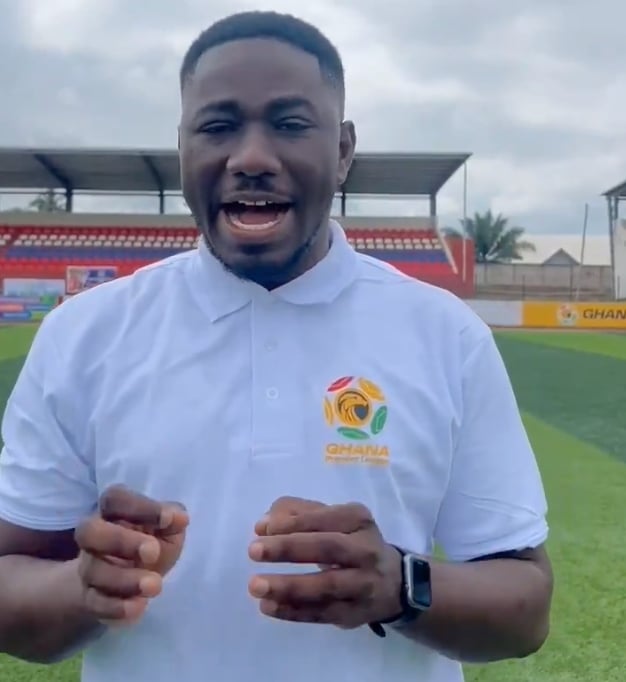








Facebook
Twitter
Pinterest
Instagram
Google+
YouTube
LinkedIn
RSS